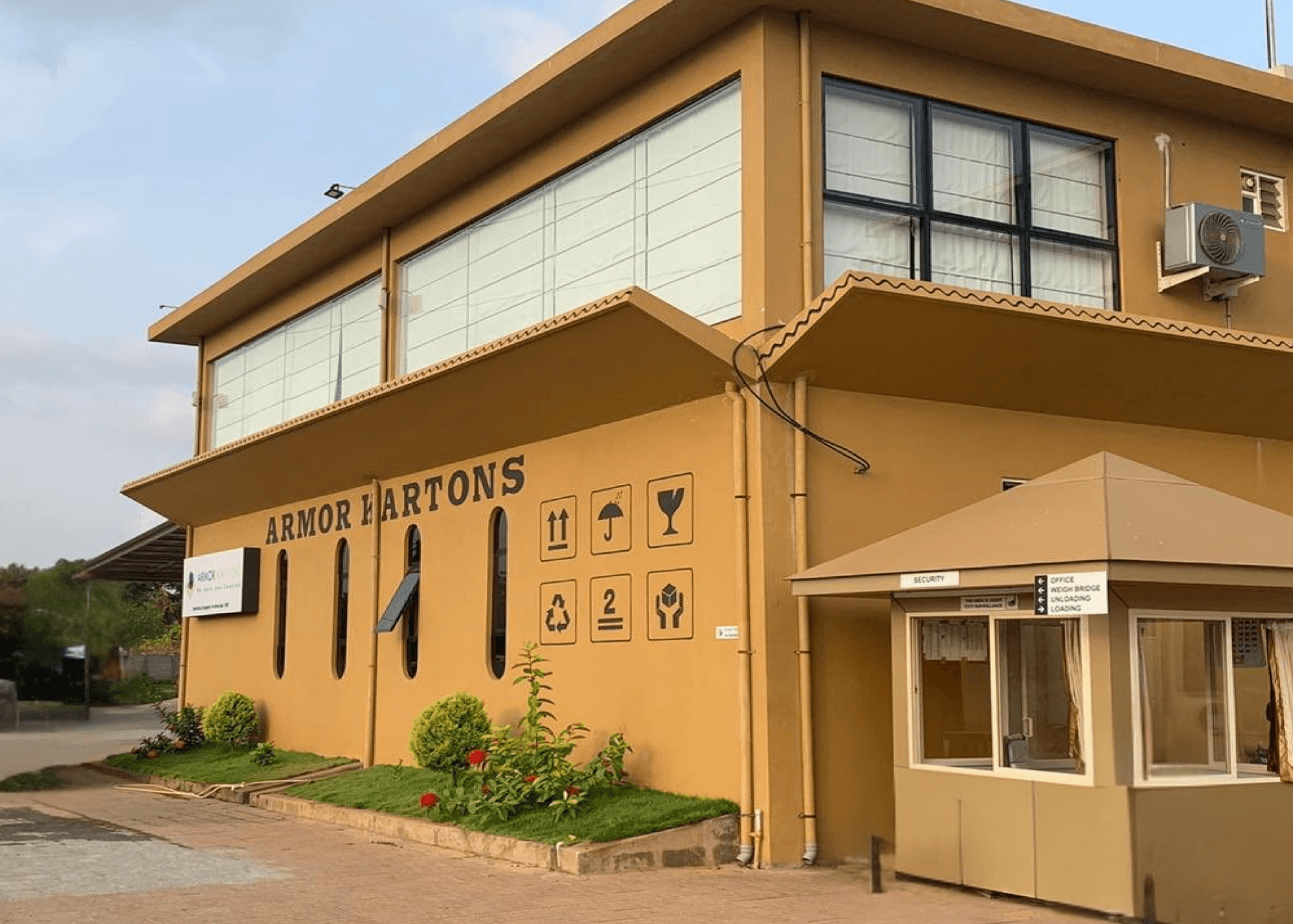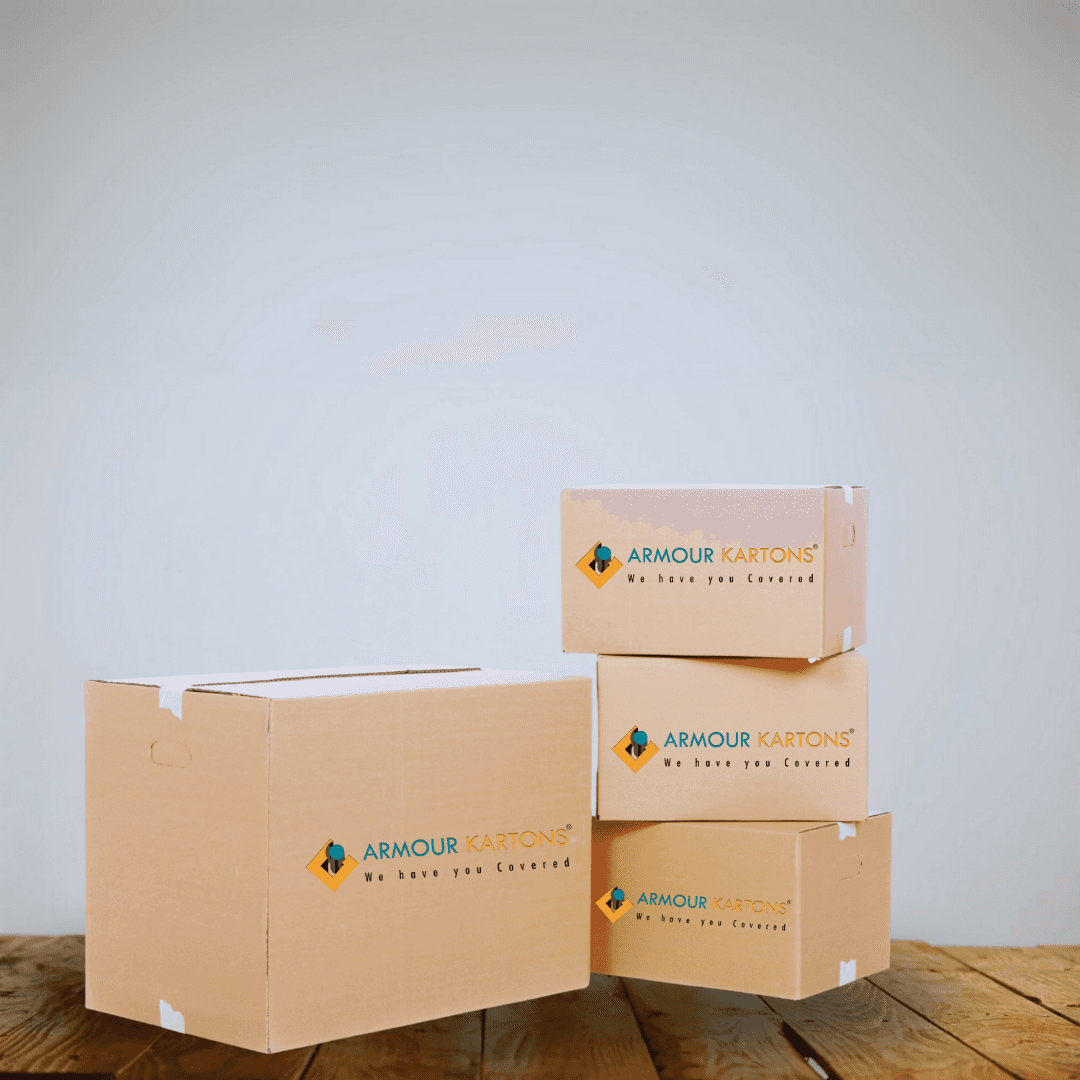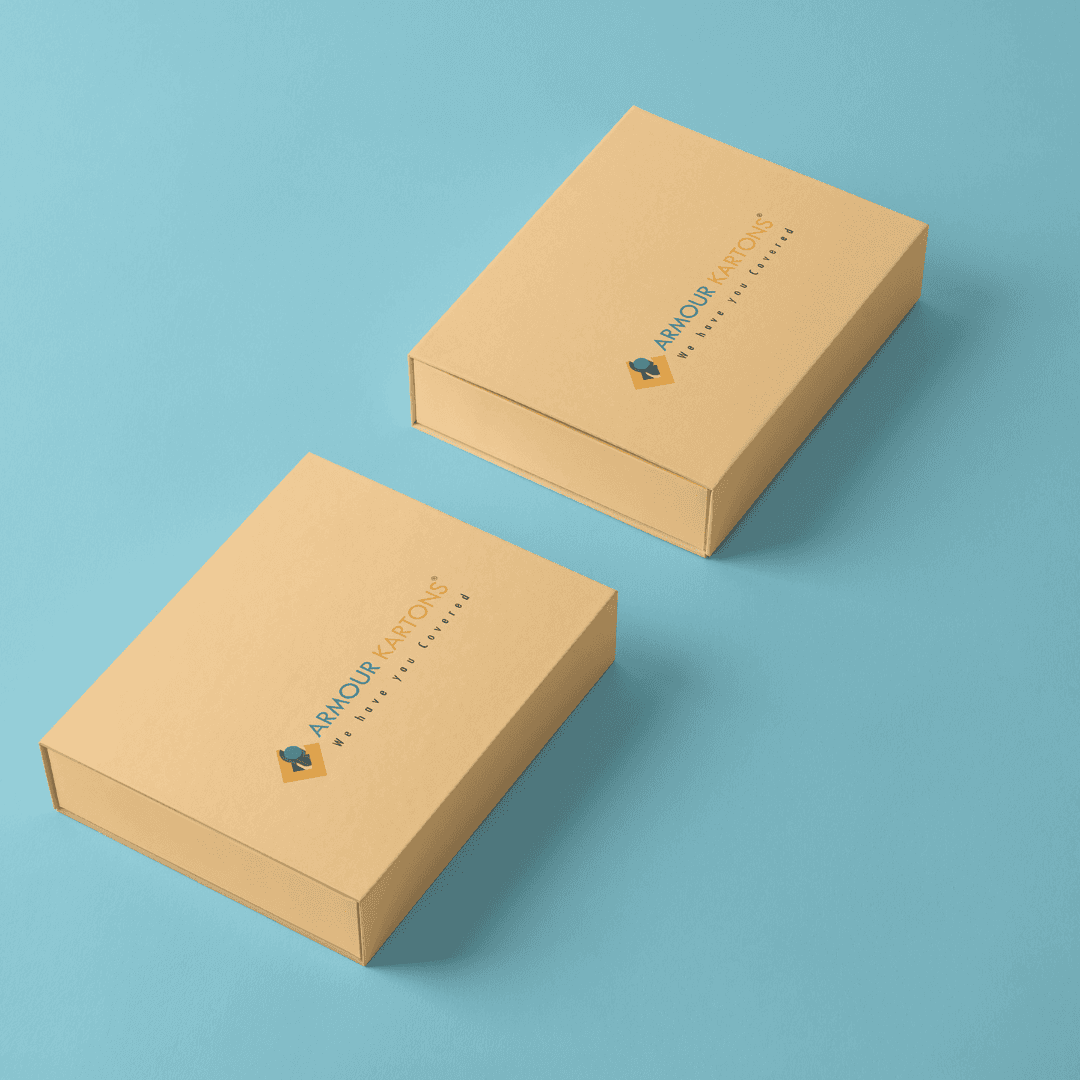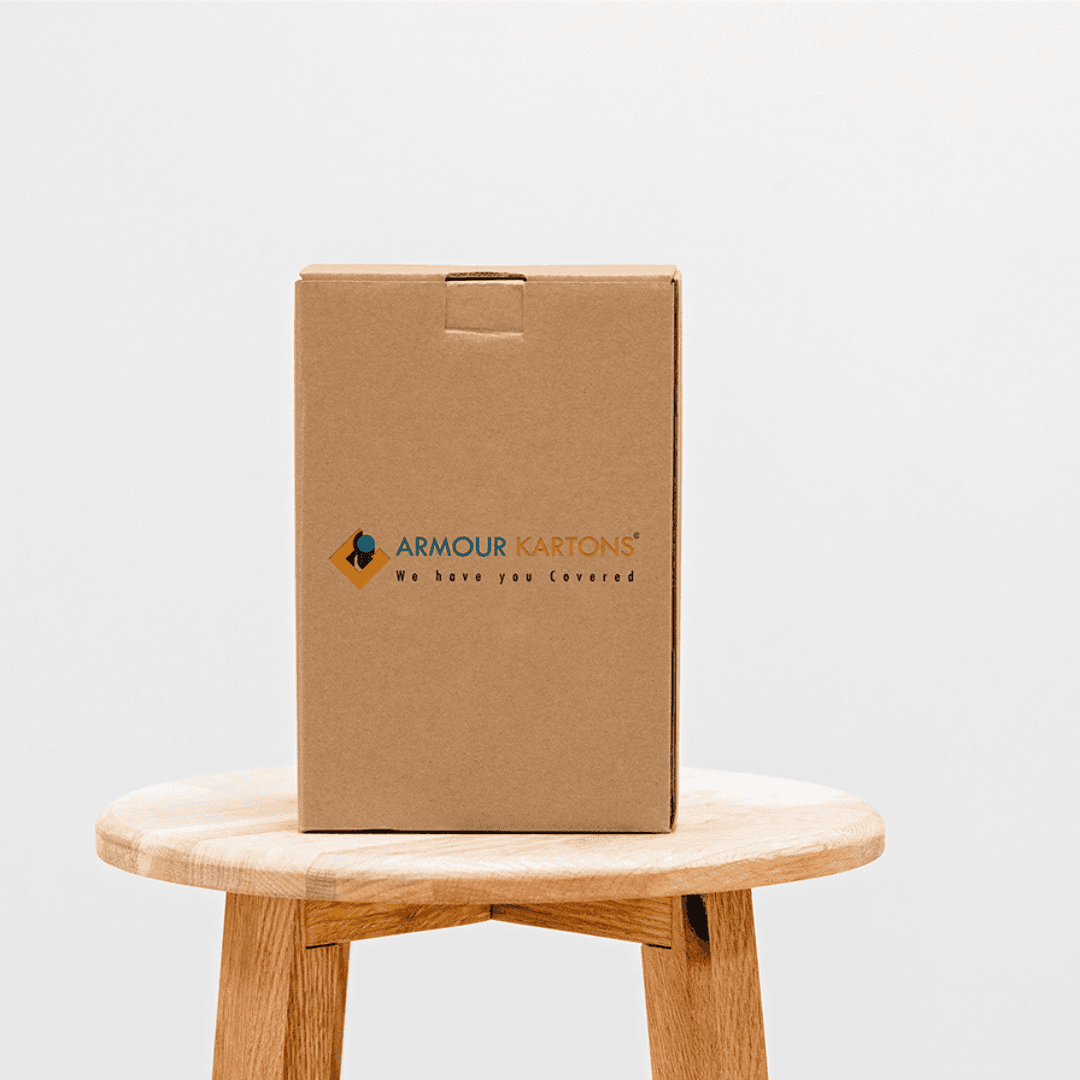The Importance of Sustainable Packaging: Why Corrugated Boxes Lead the Way
The Importance of Sustainable Packaging: Why Corrugated Boxes Lead the Way
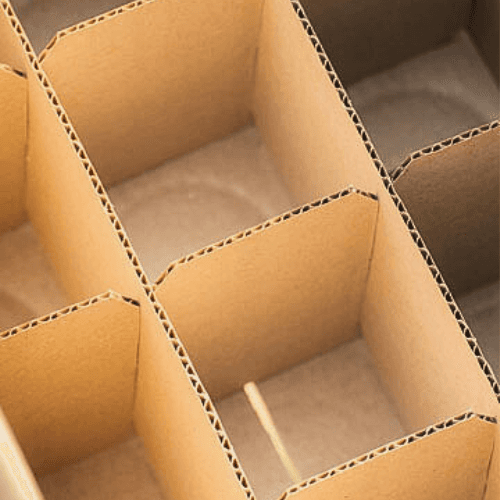


Publihed On
April 11, 2024
Author
ARMOURKARTONS
Category
Corrugated boxes
In today’s world, businesses are increasingly adopting sustainable practices to reduce their environmental impact, and packaging plays a significant role in this movement. As consumers grow more eco-conscious, companies are looking for ways to align with these values. One solution that has consistently stood out for its sustainability is the corrugated box. Beyond being a simple packaging solution, corrugated boxes are environmentally friendly and contribute significantly to reducing waste, conserving resources, and promoting a circular economy.
In this blog, we’ll explore the environmental benefits of using corrugated boxes and how they contribute to sustainable business practices.
1. Recyclability and Reusability
One of the primary reasons corrugated boxes are a sustainable choice is their high recyclability. Made from paper-based materials, these boxes can be easily recycled and turned into new products. In fact, the recycling rate for corrugated boxes is one of the highest among packaging materials. According to industry data, over 90% of corrugated boxes are recycled in some regions, making them a major contributor to waste reduction.
Not only can corrugated boxes be recycled, but they are also reusable. Many businesses and consumers reuse them for storage, shipping, or even DIY projects, extending their lifespan and reducing the demand for new packaging materials.
2. Made from Renewable Resources
Corrugated boxes are primarily made from renewable materials, such as wood pulp from trees. These trees are often sourced from responsibly managed forests, ensuring that new trees are planted to replace those that have been harvested. This cycle of regeneration helps maintain forest ecosystems while supporting sustainable resource management.
Moreover, the production of corrugated boxes requires fewer energy resources compared to other types of packaging, further reducing their environmental footprint.
3. Biodegradability
Unlike plastic packaging, which can take hundreds of years to decompose, corrugated boxes are biodegradable. If they are not recycled, they will naturally break down over time, reducing the amount of waste that ends up in landfills. This property makes corrugated boxes an eco-friendly alternative to materials like Styrofoam or plastic, which contribute significantly to pollution and harm wildlife.
4. Energy Efficiency in Production
The manufacturing process of corrugated boxes is energy-efficient, particularly when recycled materials are used. Producing boxes from recycled corrugated materials consumes significantly less energy than creating new ones from virgin resources. This energy savings translates into a reduced carbon footprint for businesses that choose corrugated packaging over other materials.
Additionally, modern production methods have become even more sustainable, with manufacturers adopting green energy solutions and waste-reducing technologies to further minimize the environmental impact.
5. Lightweight and Cost-Effective Shipping
Corrugated boxes are lightweight yet durable, making them an excellent option for shipping products. Their light weight reduces the energy required for transportation, leading to lower fuel consumption and fewer emissions. For businesses that ship large volumes of products, using corrugated boxes can significantly reduce their overall carbon footprint.
In addition to the environmental benefits, corrugated boxes are also cost-effective. They are typically less expensive than other packaging materials, especially when purchased in bulk, making them a smart choice for businesses looking to cut costs while maintaining their sustainability efforts.
6. Supporting the Circular Economy
The corrugated box industry is a perfect example of how businesses can embrace the circular economy—a system in which materials are reused, recycled, and returned to the production cycle, rather than being discarded as waste. By choosing corrugated boxes, companies actively contribute to this cycle, promoting sustainability and responsible resource use.
As the boxes are continuously recycled and reused, fewer raw materials are needed, and less waste is generated, helping to close the loop in packaging production and disposal.
Conclusion
Corrugated boxes are not just a packaging solution; they are a key player in the move toward more sustainable business practices. From their recyclability and renewable materials to their energy-efficient production and biodegradability, corrugated boxes offer a host of environmental benefits that make them an ideal choice for businesses looking to reduce their ecological impact.
By adopting corrugated boxes as part of their packaging strategy, companies can not only lower their carbon footprint but also demonstrate a commitment to sustainability that resonates with today’s eco-conscious consumers. As more businesses recognize the importance of sustainable packaging, corrugated boxes will continue to lead the way in helping create a greener, more sustainable future.
In today’s world, businesses are increasingly adopting sustainable practices to reduce their environmental impact, and packaging plays a significant role in this movement. As consumers grow more eco-conscious, companies are looking for ways to align with these values. One solution that has consistently stood out for its sustainability is the corrugated box. Beyond being a simple packaging solution, corrugated boxes are environmentally friendly and contribute significantly to reducing waste, conserving resources, and promoting a circular economy.
In this blog, we’ll explore the environmental benefits of using corrugated boxes and how they contribute to sustainable business practices.
1. Recyclability and Reusability
One of the primary reasons corrugated boxes are a sustainable choice is their high recyclability. Made from paper-based materials, these boxes can be easily recycled and turned into new products. In fact, the recycling rate for corrugated boxes is one of the highest among packaging materials. According to industry data, over 90% of corrugated boxes are recycled in some regions, making them a major contributor to waste reduction.
Not only can corrugated boxes be recycled, but they are also reusable. Many businesses and consumers reuse them for storage, shipping, or even DIY projects, extending their lifespan and reducing the demand for new packaging materials.
2. Made from Renewable Resources
Corrugated boxes are primarily made from renewable materials, such as wood pulp from trees. These trees are often sourced from responsibly managed forests, ensuring that new trees are planted to replace those that have been harvested. This cycle of regeneration helps maintain forest ecosystems while supporting sustainable resource management.
Moreover, the production of corrugated boxes requires fewer energy resources compared to other types of packaging, further reducing their environmental footprint.
3. Biodegradability
Unlike plastic packaging, which can take hundreds of years to decompose, corrugated boxes are biodegradable. If they are not recycled, they will naturally break down over time, reducing the amount of waste that ends up in landfills. This property makes corrugated boxes an eco-friendly alternative to materials like Styrofoam or plastic, which contribute significantly to pollution and harm wildlife.
4. Energy Efficiency in Production
The manufacturing process of corrugated boxes is energy-efficient, particularly when recycled materials are used. Producing boxes from recycled corrugated materials consumes significantly less energy than creating new ones from virgin resources. This energy savings translates into a reduced carbon footprint for businesses that choose corrugated packaging over other materials.
Additionally, modern production methods have become even more sustainable, with manufacturers adopting green energy solutions and waste-reducing technologies to further minimize the environmental impact.
5. Lightweight and Cost-Effective Shipping
Corrugated boxes are lightweight yet durable, making them an excellent option for shipping products. Their light weight reduces the energy required for transportation, leading to lower fuel consumption and fewer emissions. For businesses that ship large volumes of products, using corrugated boxes can significantly reduce their overall carbon footprint.
In addition to the environmental benefits, corrugated boxes are also cost-effective. They are typically less expensive than other packaging materials, especially when purchased in bulk, making them a smart choice for businesses looking to cut costs while maintaining their sustainability efforts.
6. Supporting the Circular Economy
The corrugated box industry is a perfect example of how businesses can embrace the circular economy—a system in which materials are reused, recycled, and returned to the production cycle, rather than being discarded as waste. By choosing corrugated boxes, companies actively contribute to this cycle, promoting sustainability and responsible resource use.
As the boxes are continuously recycled and reused, fewer raw materials are needed, and less waste is generated, helping to close the loop in packaging production and disposal.
Conclusion
Corrugated boxes are not just a packaging solution; they are a key player in the move toward more sustainable business practices. From their recyclability and renewable materials to their energy-efficient production and biodegradability, corrugated boxes offer a host of environmental benefits that make them an ideal choice for businesses looking to reduce their ecological impact.
By adopting corrugated boxes as part of their packaging strategy, companies can not only lower their carbon footprint but also demonstrate a commitment to sustainability that resonates with today’s eco-conscious consumers. As more businesses recognize the importance of sustainable packaging, corrugated boxes will continue to lead the way in helping create a greener, more sustainable future.
In today’s world, businesses are increasingly adopting sustainable practices to reduce their environmental impact, and packaging plays a significant role in this movement. As consumers grow more eco-conscious, companies are looking for ways to align with these values. One solution that has consistently stood out for its sustainability is the corrugated box. Beyond being a simple packaging solution, corrugated boxes are environmentally friendly and contribute significantly to reducing waste, conserving resources, and promoting a circular economy.
In this blog, we’ll explore the environmental benefits of using corrugated boxes and how they contribute to sustainable business practices.
1. Recyclability and Reusability
One of the primary reasons corrugated boxes are a sustainable choice is their high recyclability. Made from paper-based materials, these boxes can be easily recycled and turned into new products. In fact, the recycling rate for corrugated boxes is one of the highest among packaging materials. According to industry data, over 90% of corrugated boxes are recycled in some regions, making them a major contributor to waste reduction.
Not only can corrugated boxes be recycled, but they are also reusable. Many businesses and consumers reuse them for storage, shipping, or even DIY projects, extending their lifespan and reducing the demand for new packaging materials.
2. Made from Renewable Resources
Corrugated boxes are primarily made from renewable materials, such as wood pulp from trees. These trees are often sourced from responsibly managed forests, ensuring that new trees are planted to replace those that have been harvested. This cycle of regeneration helps maintain forest ecosystems while supporting sustainable resource management.
Moreover, the production of corrugated boxes requires fewer energy resources compared to other types of packaging, further reducing their environmental footprint.
3. Biodegradability
Unlike plastic packaging, which can take hundreds of years to decompose, corrugated boxes are biodegradable. If they are not recycled, they will naturally break down over time, reducing the amount of waste that ends up in landfills. This property makes corrugated boxes an eco-friendly alternative to materials like Styrofoam or plastic, which contribute significantly to pollution and harm wildlife.
4. Energy Efficiency in Production
The manufacturing process of corrugated boxes is energy-efficient, particularly when recycled materials are used. Producing boxes from recycled corrugated materials consumes significantly less energy than creating new ones from virgin resources. This energy savings translates into a reduced carbon footprint for businesses that choose corrugated packaging over other materials.
Additionally, modern production methods have become even more sustainable, with manufacturers adopting green energy solutions and waste-reducing technologies to further minimize the environmental impact.
5. Lightweight and Cost-Effective Shipping
Corrugated boxes are lightweight yet durable, making them an excellent option for shipping products. Their light weight reduces the energy required for transportation, leading to lower fuel consumption and fewer emissions. For businesses that ship large volumes of products, using corrugated boxes can significantly reduce their overall carbon footprint.
In addition to the environmental benefits, corrugated boxes are also cost-effective. They are typically less expensive than other packaging materials, especially when purchased in bulk, making them a smart choice for businesses looking to cut costs while maintaining their sustainability efforts.
6. Supporting the Circular Economy
The corrugated box industry is a perfect example of how businesses can embrace the circular economy—a system in which materials are reused, recycled, and returned to the production cycle, rather than being discarded as waste. By choosing corrugated boxes, companies actively contribute to this cycle, promoting sustainability and responsible resource use.
As the boxes are continuously recycled and reused, fewer raw materials are needed, and less waste is generated, helping to close the loop in packaging production and disposal.
Conclusion
Corrugated boxes are not just a packaging solution; they are a key player in the move toward more sustainable business practices. From their recyclability and renewable materials to their energy-efficient production and biodegradability, corrugated boxes offer a host of environmental benefits that make them an ideal choice for businesses looking to reduce their ecological impact.
By adopting corrugated boxes as part of their packaging strategy, companies can not only lower their carbon footprint but also demonstrate a commitment to sustainability that resonates with today’s eco-conscious consumers. As more businesses recognize the importance of sustainable packaging, corrugated boxes will continue to lead the way in helping create a greener, more sustainable future.
Blog & Articles
Related Post
Get connected with us today
We'd love to hear from you! Whether you have questions, need a quote, or want to learn more about our packaging solutions, our team is here to help. Contact us today.




100+ Happy Client
Get connected with us today
We'd love to hear from you! Whether you have questions, need a quote, or want to learn more about our packaging solutions, our team is here to help. Contact us today.




100+ Happy Client
Get connected with us today
We'd love to hear from you! Whether you have questions, need a quote, or want to learn more about our packaging solutions, our team is here to help. Contact us today.




100+ Happy Client
Stay Updated with Armour Kartons Pvt. Ltd!
Free Consultation
Online Support
Armourkartons 2024
Copyright © 2024 Pixelmecto.All Right Reserved
Stay Updated with Armour Kartons Pvt. Ltd!
Free Consultation
Online Support
Armourkartons 2024
Copyright © 2024 Pixelmecto.All Right Reserved
Stay Updated with Armour Kartons Pvt. Ltd!
Free Consultation
Online Support
Copyright © 2024 Pixelmecto.All Right Reserved

